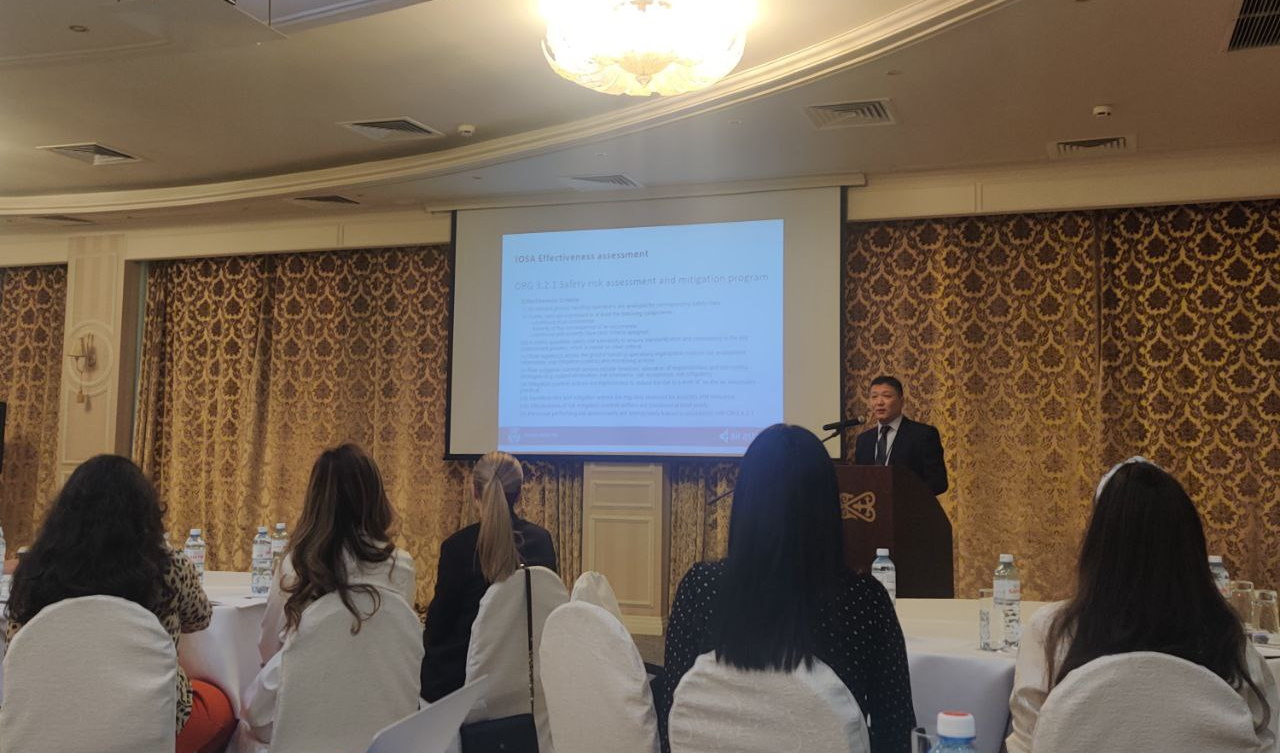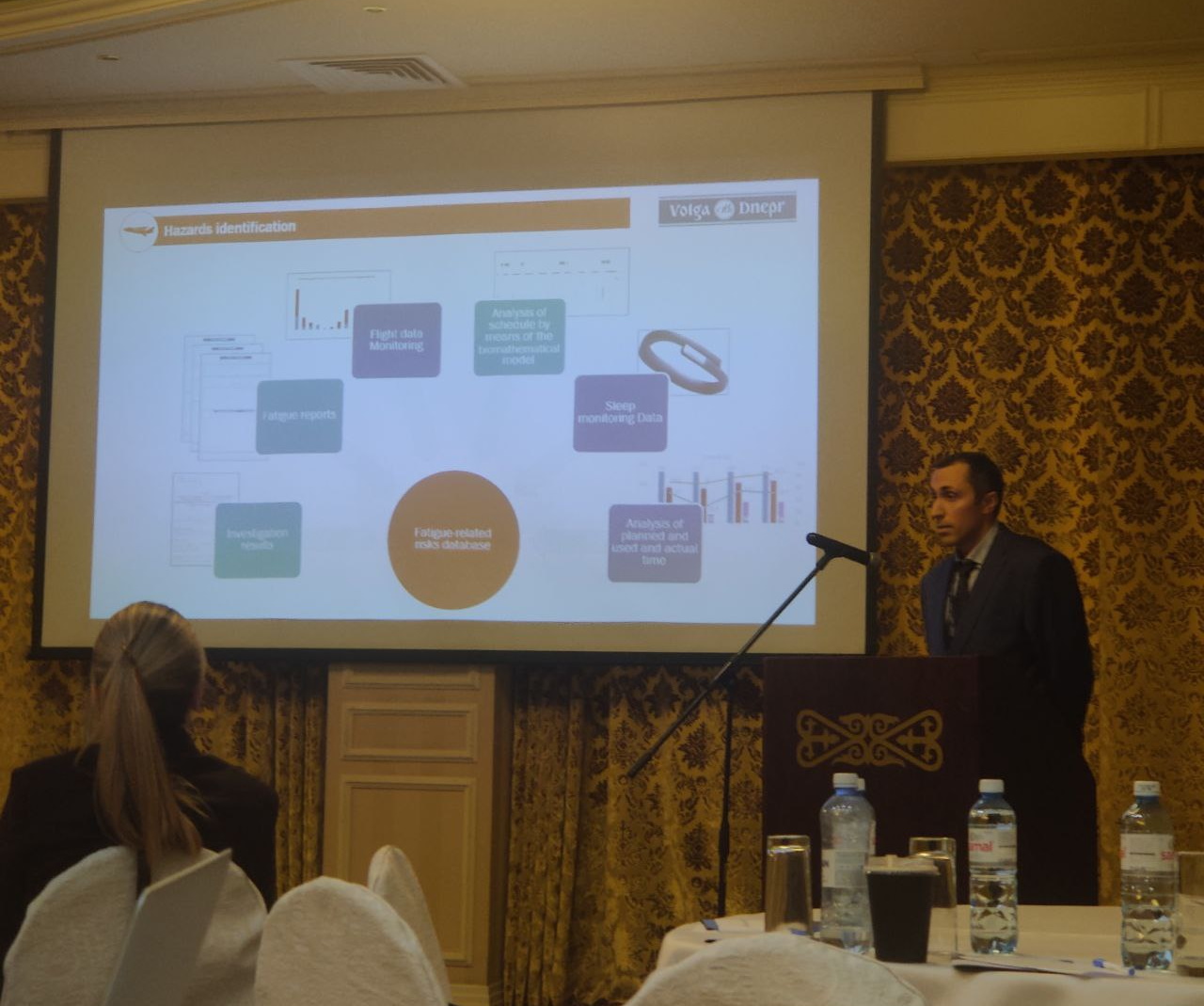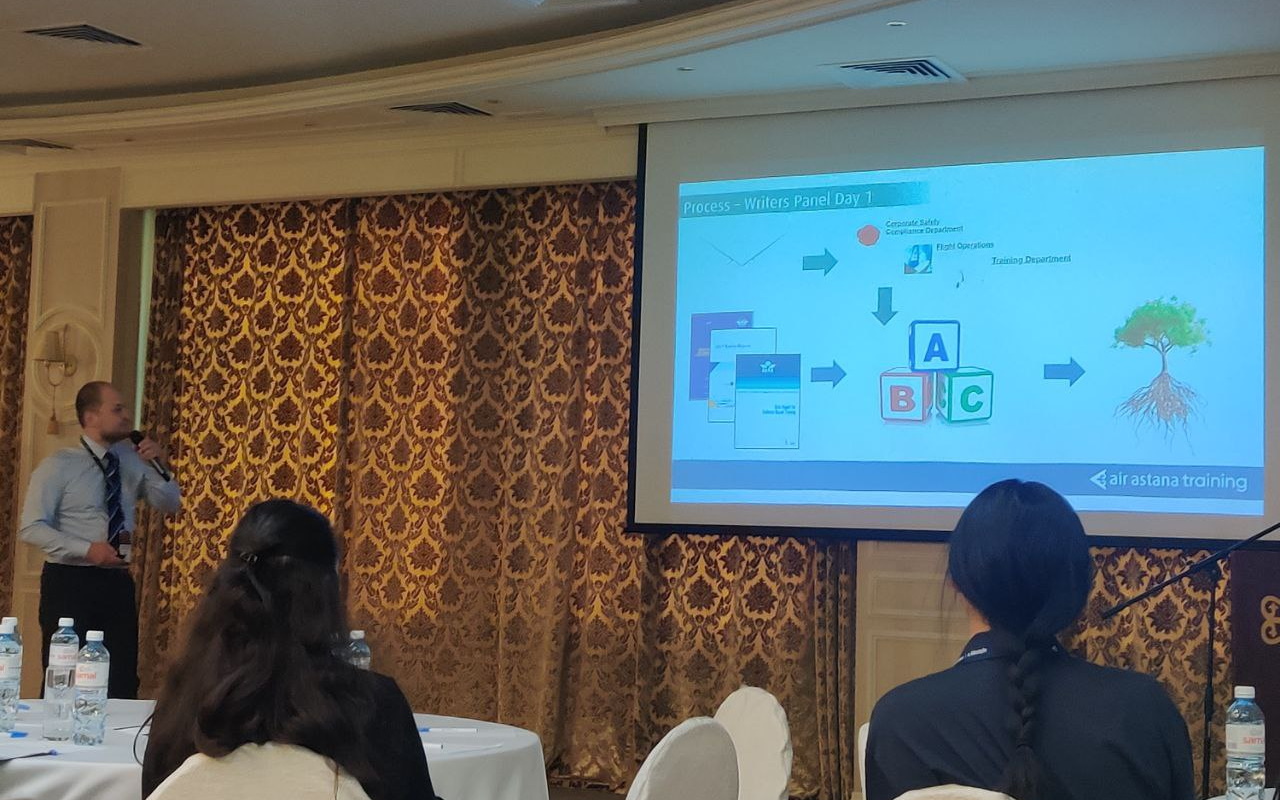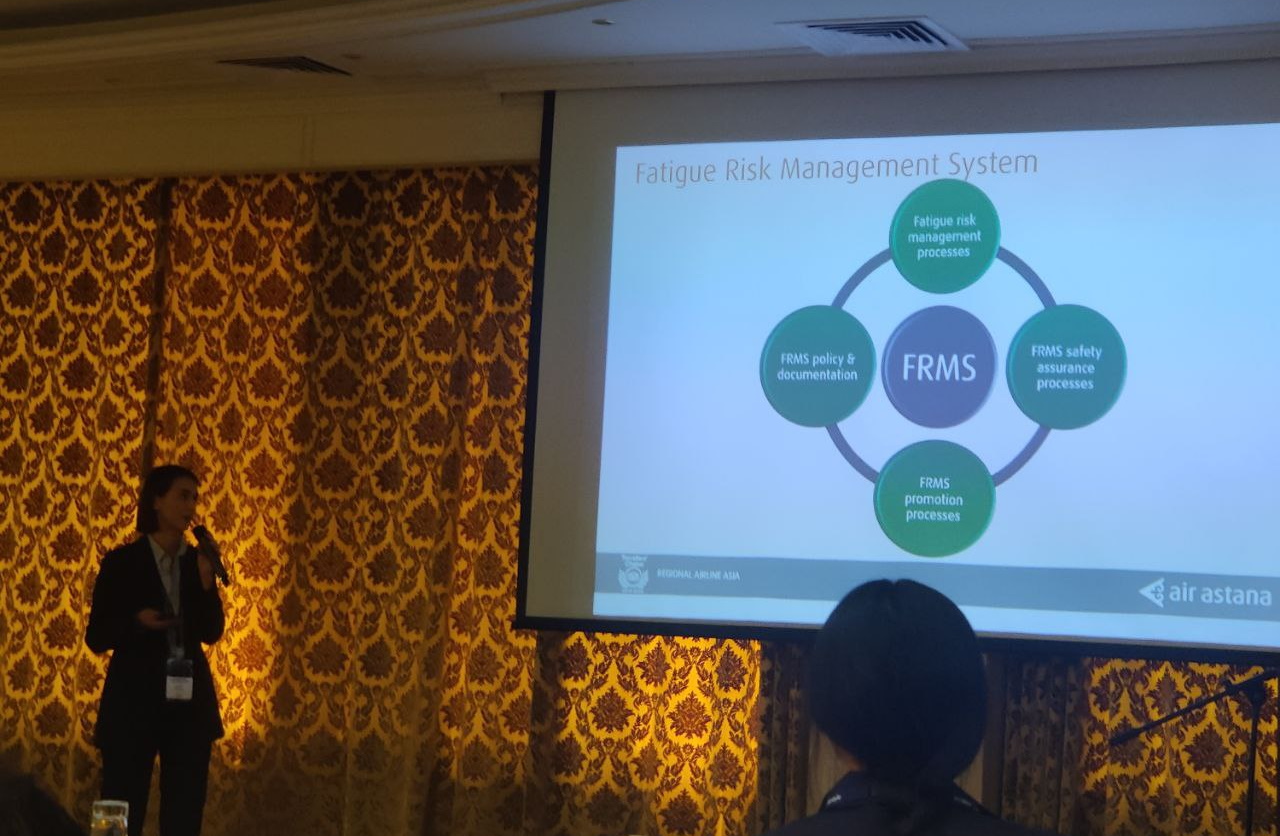ALMATY, KAZAKHSTAN – 15 and 16 September 2022
After a long 3-year wait since the last seminar in Almaty, Air Astana organized 6th edition of regional Air Safety Seminar for central Asian region. Our team participated at the seminar and made a short review of some of the interesting presentations.
In a beautiful city of Almaty at the hotel Grand Tien Shan, Air Astana team organized a 6th edition, first after the COVID-19 pandemic. The last event was organized back in 2019 which Inxelo Technologies team also participated.
DAY 1 – 15 September
The opening statement was done by the President and CEO at Air Astana, Mr Peter Foster who welcomed all the guests and highlighted the importance of Safety for his company while mentioning the huge opportunity for Kazakhstan and its bright future in aviation. After the opening statement we had an opportunity to hear from the conference host Mr Aglanbek Sarmukanov, Senior Manager Safety Programs at Air Astana who gave a presentation “Aviation Safety Highlight” where he gave us a short review of safety data worldwide with IATA’s statistics of accidents and incidents. Also Mr Sarmukanov mentioned that industry keeps changing with important changes coming in form of GRF – Global Reporting Format, EASA introducing SMS to Part-CAMO and Risk-based IOSA approach.

Aglanbek Sarmukanov opening session
The next presentation was done by Mr Zhanat Abdugalimov, Director of the Quality Control and Safety Analysis Department at Aviation Administration of Kazakhstan who explained the structure, framework and the scope of its organization. AAK is a young organization founded only in 2019 but having over 900 aircraft in its register with 460+ aircraft operational. They also initiated international cooperations with EASA, Boeing, IAA etc. Their next step is IASA FAA Audit.
Before the first coffee break, we had an opportunity to hear from Mrs Dragica Stanković, Manager at EUROCONTROL who had a presentation “Make Volunary Safety Reporting Easy and Identify Problems at the Early Phase” where she presented about EVAIR (EURCONTROL Voluntary ATM Incident Reporting) which is a voluntary ATM incident data collection at pan-European level. It was developed to enable a proactive approach to ATM and Air Navigation Service (ANS) safety. Dragica talked about challenges implementing EVAIR and how they had to adopt to make it successful where they use reports to generate concrete statistics.
After the coffee break, we had a presentation “Bird Strikes: Understanding the Risk for Effective Prevention” by Zhamilya Berdykulova, Manager Safety Compliance Ground Operations at Air Astana. She demonstrated how bird strikes can have various impact on the company from costs, reputation and causing fatalities. 61% of bird strikes are on or near the aerodrome, but Mrs Berdyulova showed one example of a bird strike at 11.300 m over Abidjan in 1973. Bird type identification is important as its a key to understanding associated risks.
Next session was done by duo Eleonora Surina and Alexander Shchukin who are part of Safety department at Volga-Dnepr Group as both of them talked about “FRMS Development and Implementation Experience”. Eleonora and Alexander have been working on FRMS project in last 6 years and they mentioned how 90% of pilots consider fatigue as one of the key problems in their work. They worked on their internal FRMS system which includes subjective data collection, bio-mathematical model which they developed with other variables (FDM, sleep, crew rostering) in order to forecast when the crew will feel most fatigued.

Alexander Shchukin, FRMS
After the lunch break, our team had a pleasure to make a different kind of presentation as Marko Rados from Inxelo Technologies had a presentation “Five Safety challenges of an SMS software” touching the topics how users interact with software, cultural differences, motivating users, safety growth and future like artificial intelligence. Next session was done by Ansara Nurpeissova, Manager Safety Report at Air Astana who talked about SIRA (Safety Issue Risk Assessment) methodology which was developed by ARMS group and how they use it inside their company.
The next presentation “Beyond Compliance – Is this anything new?” was performed by Linda Orlady, Flight Depury to the Director General at Aviation Administration of Kazakhstan and John Wainwright, team leader Special Airworthiness Projects at Aviation administration of Kazakhstan. As an authority, Linda and John talked about operational and maintenance topics. John highlighted maintenance challenges in the country as maintenance faces pressures to perform thus being liable to errors. Also John pointed out English being an obstacle as its not the first language for most of people in the country. Linda talked about good procedure design which has to be logical and consistent to avoid misunderstandings and issues inside the organizations. They are working on improving the safety landscape in Kazakhstan.
The last presentation of the day was by Andrey Legkodymov (Coordinator Safety Performance Flight Ops at Air Astana)and David McNair (Flight Safety Consulting) who talked about an event from November 2018 which they called “Miracle at Beja” about the incident in Portugal.
DAY 2 – 16 September
The second day of the conference was opened by Filippos Siakkas, head of training at Air Astana who talked about “Evidence-based Trainings” which he labelled “beyond compliance” approach. Mr Siakkas talked about how we cannot train for everything and that just ticking the boxes does not enhance safety. Also exotic devices he called create ‘exotic problems’ referring to various cool aid that might make more issues that help. Filippos highlighted the need for a new paradigm where we switch from maneuver based trainings to skill-based trainings. Also pass fail trainings should be transformed to continuous assessments. Customized trainings are very important.
Afterwards, we had a presentation “Writers Panel” by Talgat Akhmetov, Manager Fleet Training Airbus at Air Astana who talked how sim recurrent training is prepared where Talgat expalined the cycle of determing the root cause –> then finding the type of training for crew –> deciding where the training should be (sim, class) –> creating exercises –> performing training. He focused on the issue of unstable approach which can lead to runway excursions which should activate go-around approach. They are training pilots to focus on threats and anticipate the problems coming ahead.

Talgat Akhmetov “Writers Panel”
Next session was about “Airbus Product Safety addressing safety challenges” by Regional Safety Director at Airbus Alexander Egorov. Alexander talked about Airbus’s approach to enhance safety where they developed accident prevention strategy which consists of three areas: aircraft, airlines and air transport systems where the key is to share info between those participants and reduce the accident rate across all layers of the industry. Airbus developed ‘Safety Beyond Standard (SBS)’ which increases autopilot availability and enhances crew interface and awareness. Mr Egorov talked about runway incursion and excursion prevention products by Airbus including TOS (Take off Securing) 1 and 2 and ROPS Principle for prevention of runway overruns.
The session by David McNair was followed where he talked about “Unsafe or Safety Significant Acts” where David gave few examples of investigations where defining acts as safety-significant reduces an interference of blame which is critical in investigations. He also gave a glimpse into human performance when analyzing for investigations.
After David, we had an online session by Tatiana Aleksandrova who is a Safety and Flight Operations Manager at IATA. Tatiana reminded the audience about the issue of CFIT (Controlled Flight into Terrain) with some of IATA’s statistics warning about CFIT related incidents and its trend. IATA developed Detailed implementation plan for CFIT prevention.
The penultimate presentation which was very interestingly presented by Mariya Pulnikova (Manager Safety Programs Standards at Air Astana) was about “Subjective approach to managing fatigue”. Mariya showed about fatigue identifications which she explained in 3 ways: reactive (reports, audits, investigations), proactive (self-reported fatigue risks, surveys, performance data, sleep) and predictive (bio-mathematical model, past experiences etc.).

Mariya Pulnikova, FRMS
The final presentation of the conference was by the host who opened it, Aglanbek Sarmukanov, who gave a use-case study of data analysis in order to understand the risks inside their company. Finally, the conference was closed by closing statement from Gerhard Coetzee who acts as a Corporate Safety Compliance Vice-president.
We would like to thank the organizers for another amazing seminar about Safety and for having a pleasure to actively participate at this year’s event.







